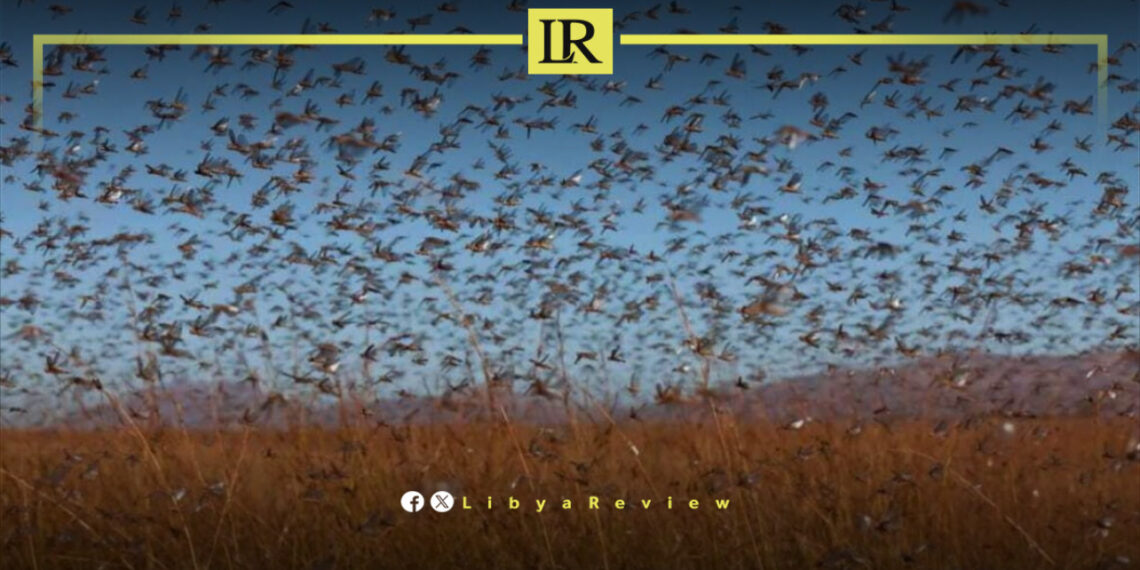The Food and Agriculture Organization (FAO) has issued a warning about the ongoing and potentially escalating spread of desert locust swarms across Libya and the broader North African region during the summer months of June and July.
The alert comes as locusts continue to breed and form swarms in several countries, with Libya among the most affected.
The FAO confirmed that both adult and immature swarms are actively forming in Libya, Tunisia, and Algeria. In Libya, the infestation has been particularly severe in areas north of Ghat, south of Ghadames, and around the city of Sabha.
Smaller swarms have also been identified in locations such as Tazirbu and south of Bani Walid. According to the organization, hopper bands—clusters of immature locusts—developed during May and are expected to continue maturing in June.
Once mature, these hoppers are expected to form larger, flying swarms capable of traveling vast distances and causing severe agricultural damage.
The FAO expects this phase to begin shortly in northern Libya, Tunisia, and Algeria. Additionally, summer breeding is anticipated to begin in southern Algeria, northern Niger, and parts of Mauritania, raising further concern for regional spread.
The FAO stressed the importance of strengthening surveillance and control efforts to contain the outbreak. If not addressed promptly, the swarms could cause significant damage to crops and threaten food security in already vulnerable areas. The agency called on affected countries to coordinate efforts and deploy resources quickly to avoid a wider regional crisis.
Desert locusts are considered one of the most destructive migratory pests in the world. A single swarm can consume the same amount of food in one day as thousands of people.
The current conditions, ranging from favorable breeding environments to limited national capacity, make this outbreak particularly dangerous.
The FAO emphasized that the window for containment is narrowing and that immediate action is necessary to prevent a large-scale food emergency in the region.


